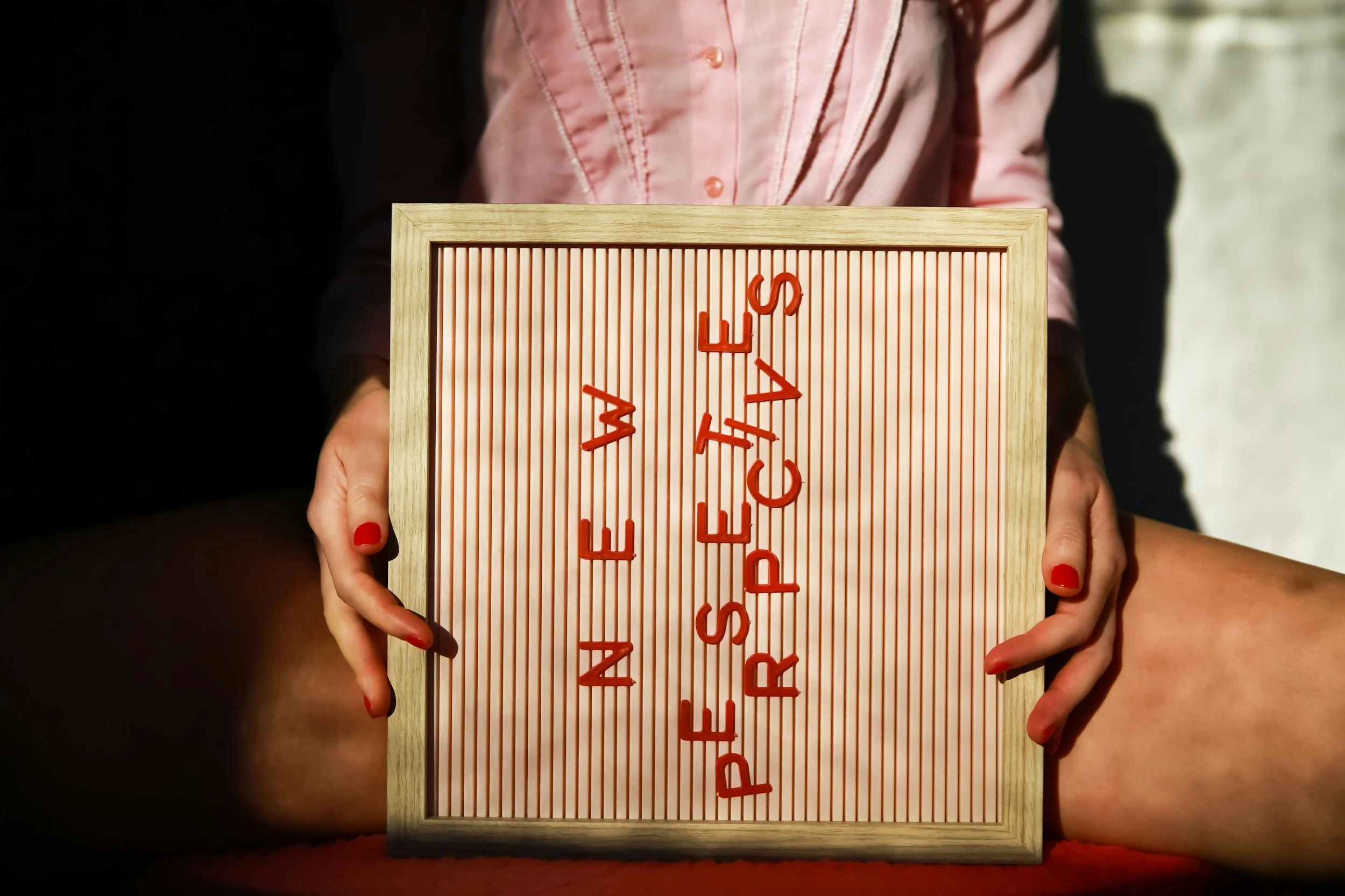11 Common Misconceptions About Author Branding (and How to Overcome Them)
When we think about author branding, we often assume it’s something reserved for big-name authors with a massive following or for marketing-savvy personalities who seem to know all the right moves.
But author branding is crucial at every stage of a writer’s career, whether you're traditionally published, self-published, or just starting out. Unfortunately, misconceptions about what branding actually entails can hold writers back from effectively establishing their presence in a crowded market.
From the belief that only books define an author’s brand to the fear that branding requires an extroverted or overly polished persona, these misunderstandings can lead to missed opportunities. Let’s explore some of the most common misconceptions about author branding and offer insights to help you build an authentic, engaging presence that resonates with readers—without compromising who you are as a writer.
11 Common Misconceptions About Author Branding (and How to Overcome Them)
1. “My Books Are My Brand”
Misconception: A lot of writers think, “If I just focus on writing great books, my brand will take care of itself.”
Reality: Your books are a big part of your brand, sure, but your brand is also you. Readers want to connect with the person behind the words. How you show up online, in interviews, and even in casual conversations—these all contribute to your brand. Think of it as an extension of your storytelling, but instead of a plot, it’s the story of you.
Pro tip: Make a list of three themes or values that consistently show up in both your books and your life. Use these as guideposts for your brand messaging across all platforms.
2. “Branding Is Only for Big-Name Authors”
Misconception: You might find yourself thinking: "I don’t need to worry about branding until I hit it big or get a book deal."
Reality: Branding isn’t just for bestsellers. It’s for every writer. In fact, building your brand early can help you get that book deal or build an audience for your self-published work. Your brand helps people know who you are and what you're about before they even read a single page of your book.
Pro Tip: Start small by consistently using the same bio and photo across all your platforms. This helps establish your presence and builds familiarity with your readers.
3. “Branding Means I Have to Be Fake or Overly Polished”
Misconception: Some writers worry, "Branding sounds like I have to put on a shiny, perfect version of myself, and that’s just not me."
Reality: The best brands are the ones that feel real. Readers are looking for authenticity, not perfection. You don’t need to be someone you’re not—you just need to be true to yourself in a way that connects with your audience. It’s about letting your unique personality shine, even in the messy moments.
Pro Tip: Share a behind-the-scenes moment from your writing life—whether it’s a messy desk or a moment of writer’s block. Let readers see your authentic process.
4. “If I Write in Multiple Genres, I Can’t Build a Cohesive Brand”
Misconception: I’ve had writers ask, "How can I build a brand if I write in different genres like romance and fantasy? Won’t that confuse readers?"
Reality: It’s not about the genre—it’s about the thread that ties all your work together. Maybe it’s your sense of humor, your unique voice, or the way you handle emotions. That’s what readers will connect with, no matter what genre you write. Your brand is less about what you write and more about how you write it.
Pro Tip: Focus on what makes your storytelling style unique across genres, and communicate that to your readers. Consistency in voice, not genre, is what holds a brand together.
5. “I Need to Be on Every Platform”
Misconception: The idea of social media can feel overwhelming, especially if you think, "I have to be on every single platform or I’ll miss out on readers."
Reality: The truth is, you can’t be everywhere at once, nor do you need to be. It’s better to show up where your readers are and where you enjoy spending time. If you love Instagram, focus on that. If you prefer long-form writing, maybe a blog or newsletter is more your style. Pick what works for you and your audience.
Pro Tip: Pick one or two platforms you enjoy and feel comfortable with. Engage deeply there instead of trying to manage too many at once. Quality engagement beats quantity every time.
6. “Branding is Only About Selling”
Misconception: Some writers feel uncomfortable with the idea of branding, thinking, "Branding is just a marketing strategy for selling books, and I’m a writer, not a salesperson."
Reality: Your brand is an extension of your storytelling. It’s the narrative you create around yourself as an author—how you share your journey, the themes you explore, and the emotions you evoke in your readers.
When done well, branding invites readers into your world and makes them feel personally invested in both you and your work. It’s about sharing your story, not just selling your books. Think of a brand as the relationship between you, your book, and the reader.
Pro Tip: Shift your mindset from selling to storytelling. Share stories behind your writing process, inspiration, or even character development. This invites readers into your world, not just your sales funnel.
7. “Once I Create My Brand, It’s Set in Stone”
Misconception: You might wonder, "If I establish my brand now, am I stuck with it forever?"
Reality: Your brand will grow and evolve just like you do. Maybe you start off writing contemporary fiction but later move into historical novels. That’s okay! Your brand should reflect who you are right now, and it’s totally fine to adjust as your career changes. The key is staying honest with your readers about your journey.
Pro Tip: Embrace change as part of your brand evolution. When you’re making a shift, communicate it to your readers through a blog post, newsletter, or social media. Let them feel part of the journey.
8. “A Brand is Just About Visuals”
Misconception: Many writers think, "If I don’t have a fancy logo or a professionally designed website, I don’t have a brand."
Reality: Yes, visuals are part of your brand, but they’re not the whole story. Your brand is also your voice, the way you interact with readers, the themes you explore, and the personal stories you share. The emotional connection you create is way more important than having a logo.
Pro Tip: Focus on how you want readers to feel when they interact with your brand. Whether it’s through your website, social media, or your books, the emotional connection you create is what will leave a lasting impression.
9. “Readers Don’t Care About the Author, Just the Books.”
Misconception: It’s easy to assume, "Readers are only here for the stories—I’m just the person behind the words."
Reality: Readers do care about you! In today’s world, readers want to know the person behind the books. They love getting behind-the-scenes peeks, hearing about your creative process, or learning what inspires you. When readers feel connected to you, they’re more likely to support your work for the long haul.
Pro Tip: Share bits of your personal journey in your author newsletters or social media. Readers love behind-the-scenes insights and feeling like they’re getting to know you beyond the pages of your book.
10. “Branding is All About Self-Promotion”
Misconception: Sometimes, branding can feel like, "I’m just talking about myself all the time, and that feels self-centered."
Reality: Branding isn’t about bragging—it’s about building relationships. Instead of thinking of it as self-promotion, think of it as sharing pieces of your journey that will resonate with your readers. Maybe it’s your struggles, your victories, or just your thoughts on writing. It’s about connecting, not selling.
Pro Tip: Focus on storytelling rather than self-promotion. Share something helpful or relatable for your readers—whether it’s writing advice, personal challenges, or an interesting insight. Show them that you’re in this together.
11. “If I’m Not an Extrovert, I Can’t Build a Brand”
Misconception: It’s easy to believe, "I’m introverted and not great at social media, so I can’t have a strong brand."
Reality: You don’t have to be loud or extroverted to build a brand. Thoughtful blog posts, engaging newsletters, or even quiet, consistent interaction on a platform you feel comfortable with can build a strong brand.
Your brand should reflect your personality, and if that’s more introverted and thoughtful, embrace it! Many readers appreciate quieter, reflective voices just as much as they do more boisterous ones. The key is to be consistent and genuine in how you connect.
Pro Tip: If social media isn’t your thing, lean into writing blog posts or newsletters where you can connect in a more intimate, long-form way. Build a community that appreciates your quiet, thoughtful voice.
Building an author brand can feel overwhelming, especially when you're juggling writing, marketing, and other aspects of your career. But understanding the common misconceptions around branding is the first step toward creating a strategy that feels authentic and sustainable. Whether you're just starting out or looking to refine your existing brand, remember that a successful author brand is about connection, not perfection. It’s about sharing your unique voice with readers and inviting them into your world, one story at a time.
Ready to take the next step in developing your author brand?
Start by reflecting on what makes your voice and storytelling style unique. Explore our Author Brand Guide for helpful insights, and if you’re looking for more personalized support, consider booking a consultation. Your readers are waiting to connect with you—now is the perfect time to start building those lasting relationships!
Inside this workbook, you'll:
✦ Discover Your Authentic Voice: Identify and explore your core values, uncovering the themes, beliefs, and causes that deeply resonate with you and form the foundation of your unique authorial voice.
✦ Connect with Your Ideal Reader: Define your target audience with precision, understanding who your ideal reader is and tailoring your message to resonate specifically with them.
✦ Craft Compelling Messaging: Develop a strategic approach to interacting with your readers by crafting key messaging that authentically reflects your voice, resonates with your audience, and forms the cornerstone of your brand strategy.
Tiffany Grimes (she/they) is the founder of Burgeon Design and Editorial, a queer founded boutique editing and design house for the creatively audacious. At Burgeon, we specialize in book editing, coaching, and web design for the individualists, nonconformists, and trailblazers of the literary world. If you’re a maverick, outsider, rebel, renegade, dissenter, disruptor, or free spirit, you’ve come to the right place.





